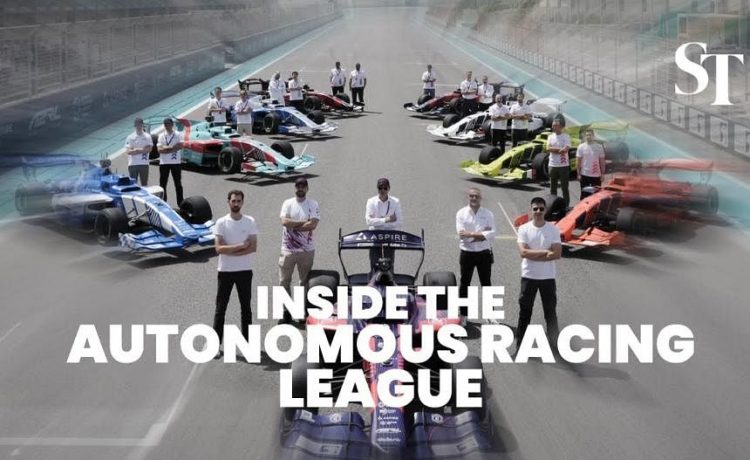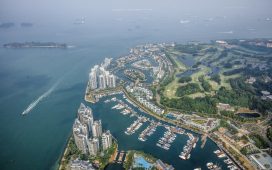ABU DHABI – Technical difficulties put the brakes on the hopes of a Nanyang Technological University (NTU) team of winning an autonomous car race in the United Arab Emirates (UAE) on April 27, signalling that it will be many years before artificial intelligence (AI) can finally take the driver’s seat.
Team Kinetiz, a collaboration between NTU and UAE technology group Kintsugi, was one of eight teams from around the world competing in the inaugural event of the Abu Dhabi Autonomous Racing League (A2RL).
Three other teams also did not compete in the final: US-based professional autonomous racing team Code 19; Fly Eagle, a collaboration between the Beijing Institute of Technology and UAE’s Khalifa University; and Humda Lab from Hungary. During pre-qualifying trials, the Fly Eagle car also suddenly swerved out of control.
In the final race on April 27, four teams competed simultaneously on a Formula 1 track for the first time. A team from the Technical University of Munich (TUM) clinched first place.
A2RL is organised by Aspire, the business development and programme management arm of Abu Dhabi’s Advanced Technology and Research Council. One of the objectives of the event is to promote greater safety and the wider adoption of self-driving technology.
The league’s first race on the 3.5km-long Yas Marina Circuit in Abu Dhabi saw all teams racing Dallara SF23 cars, which can reach speeds of up to 300kmh.
The cars, provided by the organiser, were equipped with seven cameras, three lidar (light detection and ranging) sensors, four radars and a global navigation system. Computers onboard the cars were programmed by the teams to interpret the data from the sensors and decide how the vehicle should steer, change gears and accelerate.
Teams, which were competing for prizes amounting to US$2.25 million (S$3.05 million) on April 27, were not able to intervene during the race.
During pre-qualifying on April 25, the NTU team was in sixth place.
The NTU team – comprising more than 28 researchers, engineers and students – were plagued by a series of issues in the two days leading up to the event. These included sensors in the car losing power, as well as its global positioning system (GPS) failing – issues which affected other teams as well, said Associate Professor Holden Li, the NTU team lead.
The NTU team attributed to inexperience its inability to anticipate potential problems.
“It’s only in the last one or two months that our team actually just touched the car, compared with other teams that have raced three times already in similar races,” said NTU innovation and entrepreneurship vice-president Professor Louis Phee, noting that working on simulations could take them only so far.
Noting that NTU and Kintsugi are committed to working together for the next three years, Kinetiz team principal Tareq Albannay – who is also future systems vice-president at Kintsugi – said the team will take lessons learnt from the 2024 event into future races.
Said Prof Phee: “We have learnt much from this challenge, and with our combined strengths in computer science and engineering disciplines, we are determined to aim for a spot on the podium in next year’s race.”






